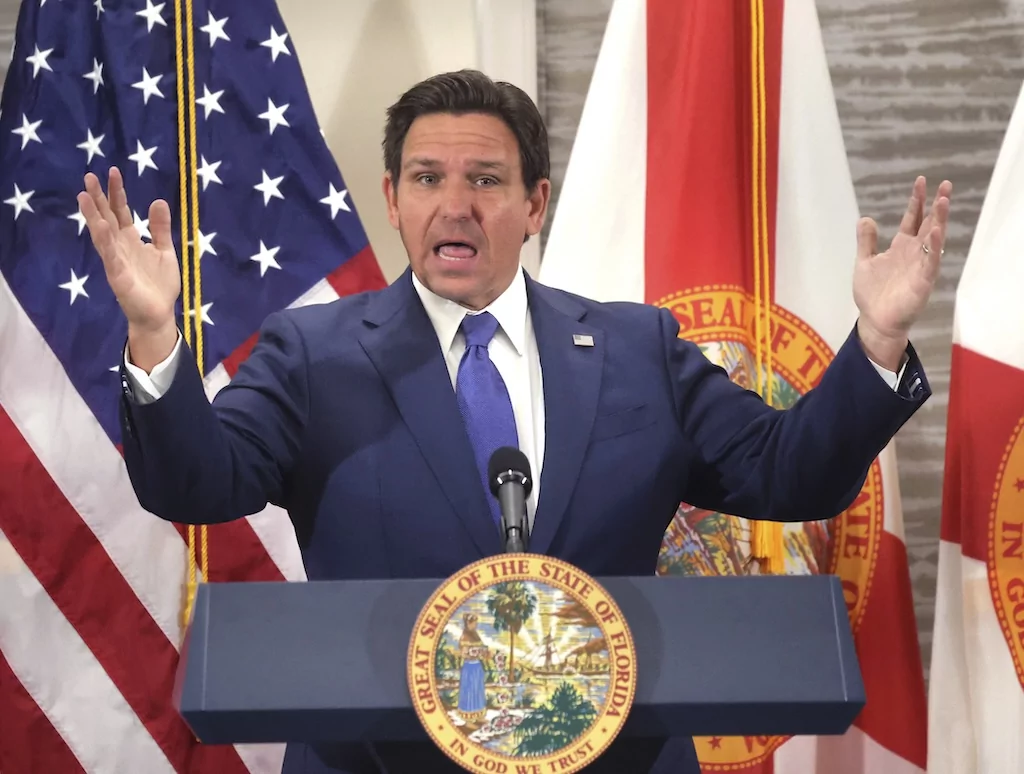A federal appeals court ruled Tuesday that a Florida law banning children from attending drag shows was “substantially overbroad” and likely violated the First Amendment.
The 11th U.S. Circuit Court of Appeals upheld a preliminary injunction blocking the 2023 Florida law, SB 1438, aimed at keeping children out of drag shows.
The 2-1 decision comes as a victory for Hamburger Mary’s, a restaurant chain that held “family-friendly” drag shows. The Orlando franchise argued that nothing in their shows was inappropriate for children and that the “Protection of Children” bill violated the Constitution. The chain mounted a lawsuit against the state that resulted in a 2023 injunction blocking Florida from carrying out the law.
The Sunshine State filed an appeal to lift the injunction but lost the battle on Tuesday.
While the “Protection of Children” law did not specifically mention drag shows, it banned venues from admitting children to adult live performances or “shows, exhibitions, or other presentations that are performed in front of a live audience, which … depicts or simulates nudity, sexual conduct, sexual excitement or specific sexual activities, … lewd conduct, or the lewd exposure of prosthetic or imitation genitals or breasts.”
Judges Robin Rosenbaum and Nancy Abudu ruled Tuesday that “by providing only vague guidance as to which performances it prohibits, the act (the law) wields a shotgun when the First Amendment allows a scalpel at most.”
“The Constitution demands specificity when the state restricts speech,” read the 81-page majority opinion that called the law “likely unconstitutional.”
“Requiring clarity in speech regulations shields us from the whims of government censors. And the need for clarity is especially strong when the government takes the legally potent step of labeling speech ‘obscene,’” the opinion continued.
Their ruling upheld a 2023 decision by U.S. District Judge Gregory Presnell that argued the state already had statutes prohibiting obscene performances. He expressed concern that the law infringed on parental rights, adding that it appeared “specifically designed to suppress the speech of drag queen performers.”
Presnell dismissed concerns that blocking the law would “harm the public by exposing children to ‘adult live performances.’”
“This concern rings hollow, however, when accompanied by the knowledge that Florida state law presently and independently … permits any minor to attend an R-rated film at a movie theater if accompanied by a parent or guardian,” he ruled.
Republican state Sen. Clay Yarborough, who spearheaded the law, pushed back against such arguments.
“Parents have the right to raise their children as they see fit, and government intervention should be a last resort,” he told local outlet First Coast News. “As lawmakers, we have a responsibility to protect children from viewing lewd conduct that is patently offensive to prevailing standards in our communities. Therefore, we have to take it seriously when a business or a government entity in our state knowingly admits children to view performances meant for an adult audience.”
Gov. Ron DeSantis (R-FL), who has argued that drag shows “sexualize” children, slammed the ruling as “dead wrong.”
The singular dissenting judge on Tuesday argued the case should have been sent to the Florida Supreme Court for help with interpretation rather than immediately stricken down.

“Instead, the majority sidesteps the very tools our system provides — tools designed to respect state authority, foster comity, and avoid unnecessary constitutional rulings,” Judge Gerald Tjoflat wrote in a 45-page dissent.
“By casting aside those safeguards, today’s decision stretches this court beyond its proper role and departs from the humility and restraint that federal courts owe when state law is in question,” he continued.
